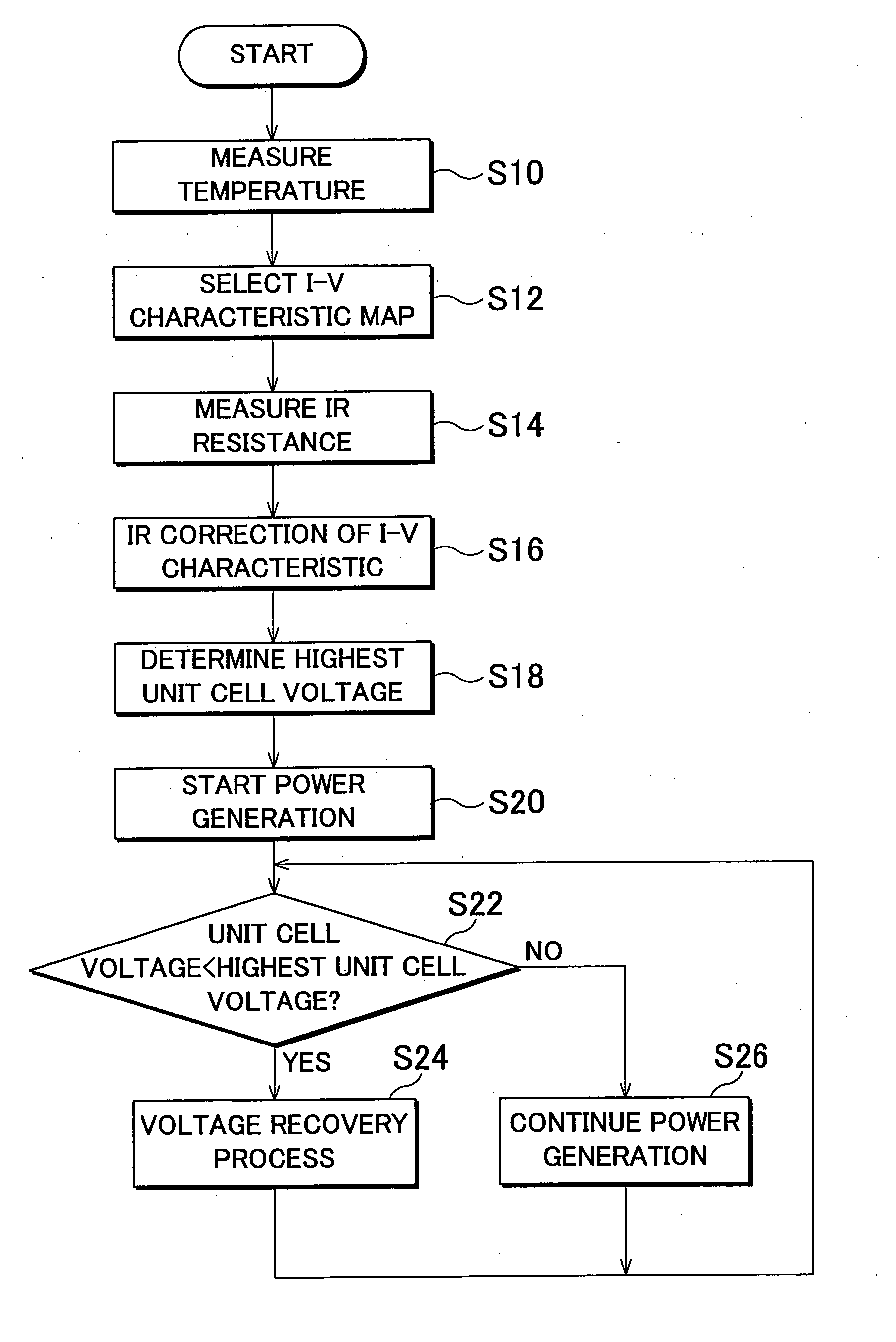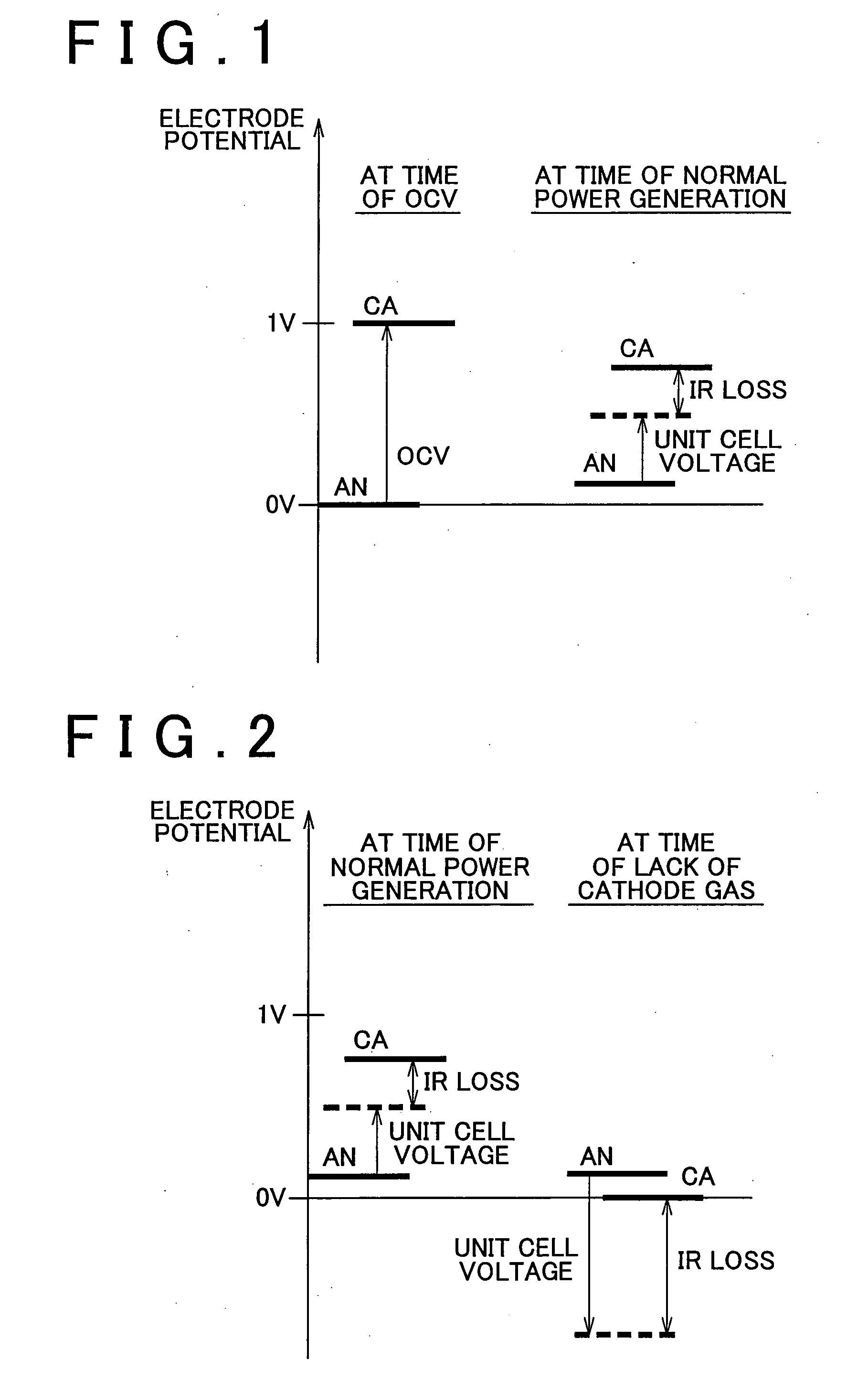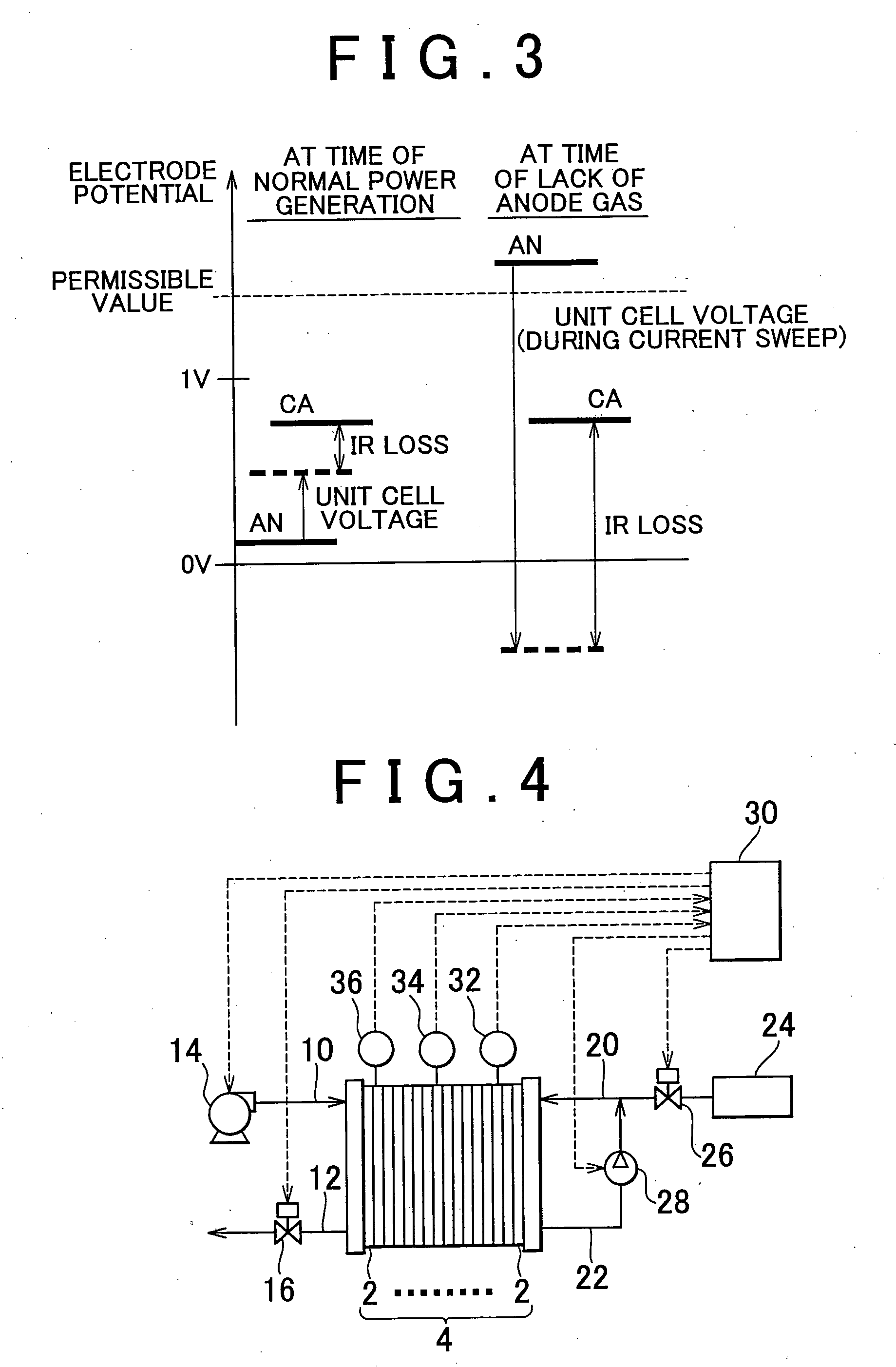Fuel cell system
a fuel cell and system technology, applied in the field of fuel cell systems, can solve the problems of mea damage and degradation, reaction gas in one or more unit cells may sometimes be less than the amount needed, and achieve the effect of preventing efficient degradation of mea
- Summary
- Abstract
- Description
- Claims
- Application Information
AI Technical Summary
Benefits of technology
Problems solved by technology
Method used
Image
Examples
embodiment 1
[0048 of the invention will be described with reference to FIGS. 4 to 7.
[0049]A fuel cell system according to Embodiment 1 of the invention shown in FIG. 4 will be described below. While FIG. 4 shows an example of the construction of the fuel cell system to which the invention may be applied, the invention is also applicable to fuel cell systems having other constructions. For example, although FIG. 4 shows a so-called “anode gas recirculation system”, the invention is also applicable to a so-called “anode dead end system” in which the anode gas is not recirculated.
[0050]As shown in FIG. 4, the fuel cell system is provided with a fuel cell 4 as an electric power supply source. The fuel cell 4 is constructed of a plurality of unit cells 2 connected in series. Each unit cell 2 generates electric power from a fuel gas containing hydrogen that is supplied to the anode (hereinafter, referred to as “anode gas”) and an oxidant gas containing oxygen that is supplied to the cathode (hereinaf...
PUM
 Login to View More
Login to View More Abstract
Description
Claims
Application Information
 Login to View More
Login to View More - R&D
- Intellectual Property
- Life Sciences
- Materials
- Tech Scout
- Unparalleled Data Quality
- Higher Quality Content
- 60% Fewer Hallucinations
Browse by: Latest US Patents, China's latest patents, Technical Efficacy Thesaurus, Application Domain, Technology Topic, Popular Technical Reports.
© 2025 PatSnap. All rights reserved.Legal|Privacy policy|Modern Slavery Act Transparency Statement|Sitemap|About US| Contact US: help@patsnap.com



